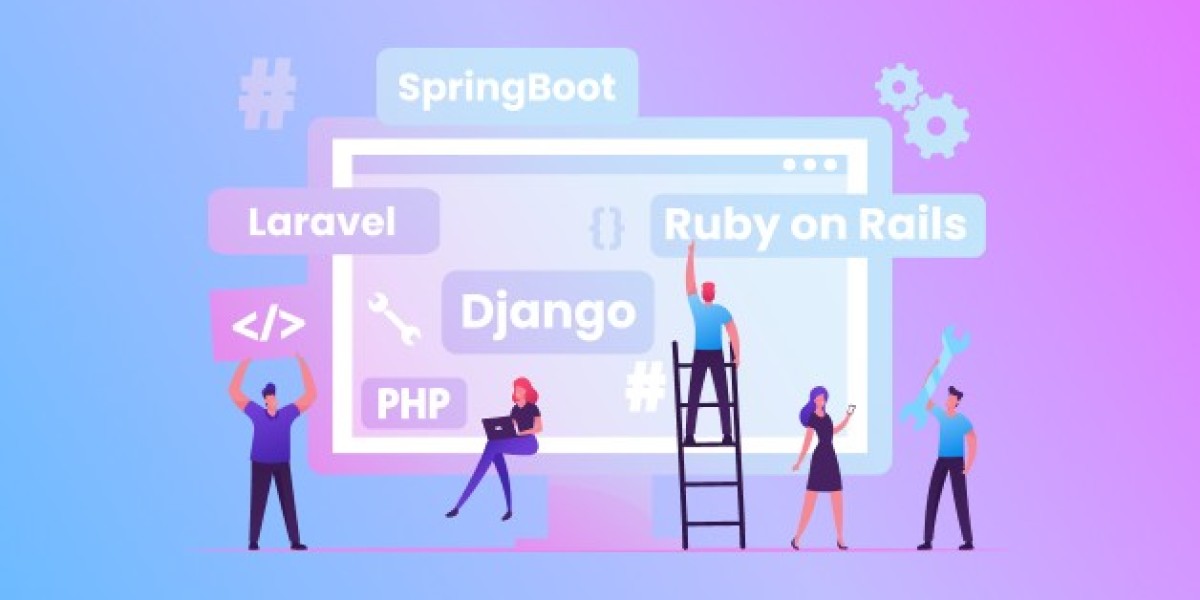Web development has evolved significantly over the years, with backend frameworks playing a pivotal role in shaping the functionality, security, and scalability of websites and applications. Backend frameworks provide developers with the necessary tools and libraries to create the server-side components of a web application, managing everything from data storage to user authentication. As we move into 2025, it’s important to know which backend frameworks are leading the pack, offering the most robust, flexible, and efficient solutions for web developers.
In this blog, we'll explore the top 5 backend frameworks for web development in 2025. Whether you're a seasoned developer or just starting out, understanding these frameworks will help you choose the right one for your next project.
1. Node.js: A Powerhouse for Real-Time Applications
Node.js has been a dominant force in backend development for years, and it continues to be one of the top backend frameworks in 2025. Built on Chrome's V8 JavaScript engine, Node.js allows developers to build scalable and fast web applications. Its event-driven, non-blocking I/O model makes it perfect for handling real-time data and concurrent requests. Whether you're building chat applications, gaming platforms, or collaborative tools, Node.js offers a level of performance and flexibility that few frameworks can match.
Key Features of Node.js:
- Asynchronous and event-driven architecture.
- Supports a wide range of libraries and modules through NPM (Node Package Manager).
- High scalability for handling multiple connections.
- Ideal for real-time applications like messaging systems and live updates.
Thanks to its efficiency and performance, Node.js remains one of the most popular backend frameworks in use today.
2. Django: The Complete Python Framework
Django is one of the most mature and comprehensive backend frameworks available for Python developers. It follows the "batteries-included" philosophy, meaning it comes with a rich set of tools and features that can help you get your web application up and running quickly. From authentication to database integration, Django handles almost everything you need, allowing developers to focus on building business logic and unique application features.
Key Features of Django:
- Built-in admin panel for easy content management.
- Strong security features, including protection against common web vulnerabilities like SQL injection and cross-site scripting (XSS).
- Scalable and flexible, making it a great choice for both small and large projects.
- Robust ORM (Object-Relational Mapping) for easy database handling.
Django is widely used in the development of data-driven websites and enterprise applications. It’s a fantastic choice for projects that require security and scalability without compromising speed.
3. Laravel: A Developer's Delight
When it comes to PHP backend frameworks, Laravel stands out as one of the most feature-rich and developer-friendly options. Laravel makes it easy to get started with PHP, offering elegant syntax and a variety of built-in tools that simplify complex backend tasks. If you're looking for a framework that combines powerful features with ease of use, Laravel is an excellent choice.
Key Features of Laravel:
- Elegant and expressive syntax that simplifies common tasks like routing, authentication, and caching.
- Powerful ORM (Eloquent) for seamless database integration.
- Blade templating engine for easy view rendering.
- Built-in task scheduling and queuing system for background processing.
As a Laravel development company ourselves, we understand the potential this framework offers for developing scalable and maintainable web applications. Whether you're building a content management system or a large e-commerce platform, Laravel has the tools you need to make your project a success.
4. Ruby on Rails: Convention Over Configuration
Ruby on Rails (RoR) is a backend framework that emphasizes convention over configuration, making it easier for developers to follow best practices and quickly build functional applications. With its strong emphasis on developer productivity and its rich ecosystem of gems (Ruby libraries), RoR continues to be one of the most popular frameworks for building web applications.
Key Features of Ruby on Rails:
- Convention over configuration for fast development.
- Extensive library of gems that extend functionality.
- Built-in features like migrations and scaffolding to speed up the development process.
- Strong focus on testing and maintaining high-quality code.
Ruby on Rails is often favored for startups and rapid prototyping due to its speed of development and ease of use. If you want to quickly bring your idea to life without sacrificing scalability, RoR is an excellent option to consider.
5. Spring Boot: The Java Framework for Enterprise Applications
Spring Boot is a powerful framework for Java developers, designed to simplify the process of setting up and configuring a Spring application. It’s perfect for building large-scale, enterprise-grade applications that require high performance, security, and reliability. By providing a set of pre-configured templates and auto-configuration options, Spring Boot makes it easier than ever to get started with Java backend development.
Key Features of Spring Boot:
- Simplified configuration and setup.
- Robust security features, including support for OAuth2 and JWT.
- Excellent integration with databases, messaging services, and web services.
- Extensive community support and a large number of plugins.
Spring Boot is an ideal choice for complex, high-performance applications where scalability and reliability are paramount. It’s especially favored by large enterprises for mission-critical systems.
Backend Frameworks: Choosing the Right One for Your Project
Choosing the right backend framework for your web development project can be a daunting task, especially with so many options available. When selecting a framework, consider the nature of your project, the size of your team, and the specific features you need.
For example, if you're building a real-time application, Node.js would be an excellent choice, while Django might be better suited for data-driven websites that require robust security. If you're a PHP developer, Laravel is a strong contender for its ease of use and extensive features. Meanwhile, Ruby on Rails shines in rapid prototyping, and Spring Boot is the go-to option for large-scale enterprise applications.
Conclusion
In 2025, these five backend frameworks—Node.js, Django, Laravel, Ruby on Rails, and Spring Boot—stand out as the best choices for web developers. Each framework offers unique features and benefits that make it suitable for different types of projects. By understanding the strengths of these frameworks, you can make a more informed decision on which one to use for your next web development project.
At GloryWebs, we specialize in custom web development solutions using top frameworks like Laravel to ensure your project is built with the highest quality, scalability, and security. Whether you need a simple website or an enterprise-level application, we have the expertise to deliver. Contact us today to learn more about our services.







